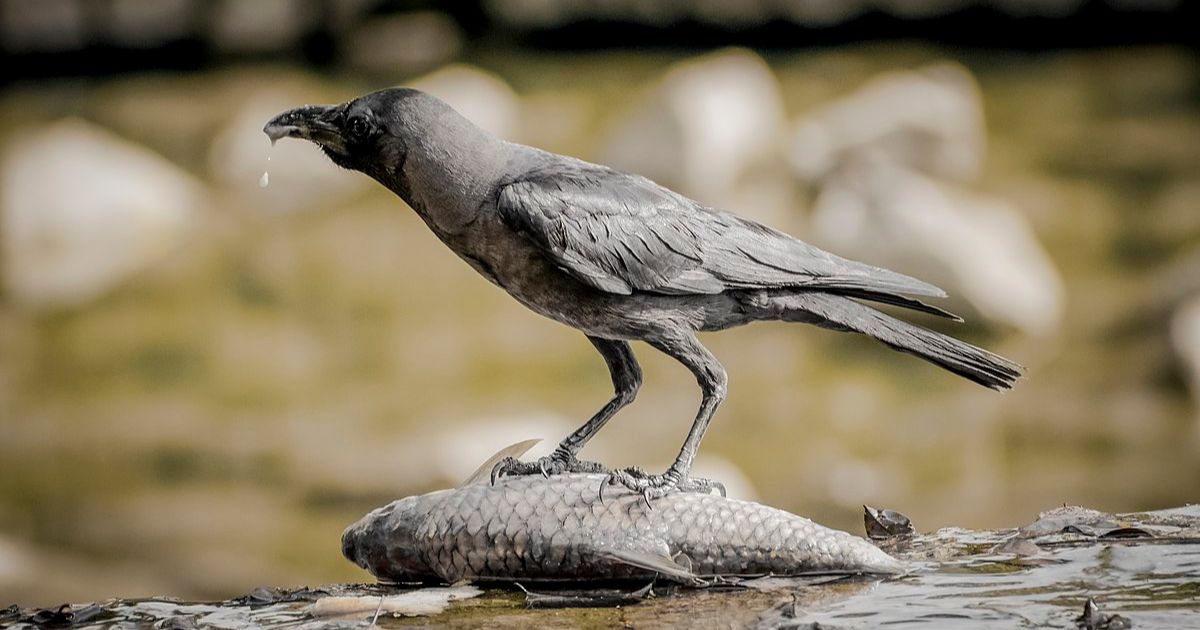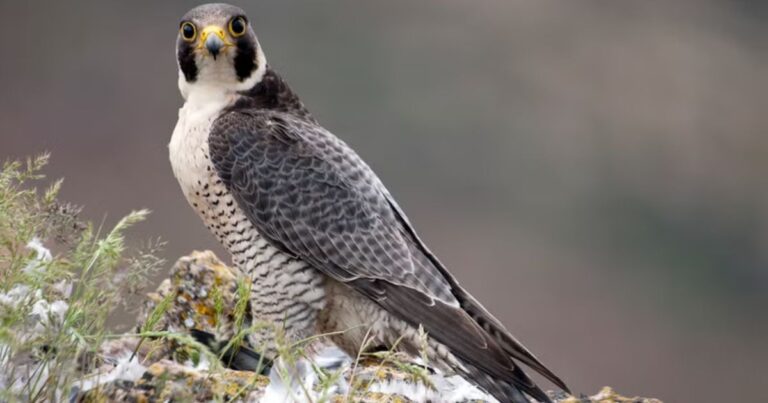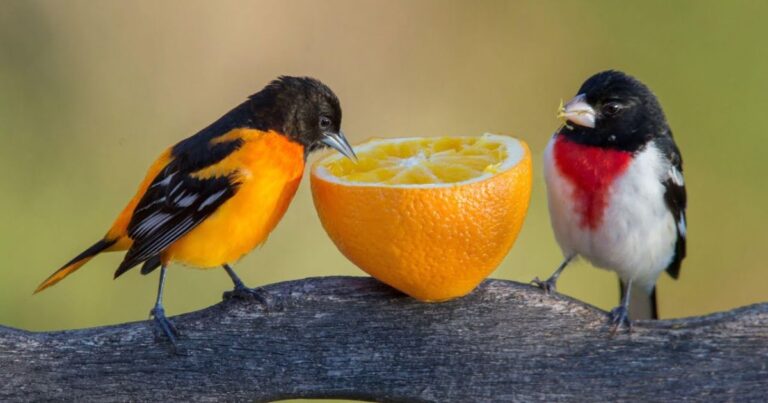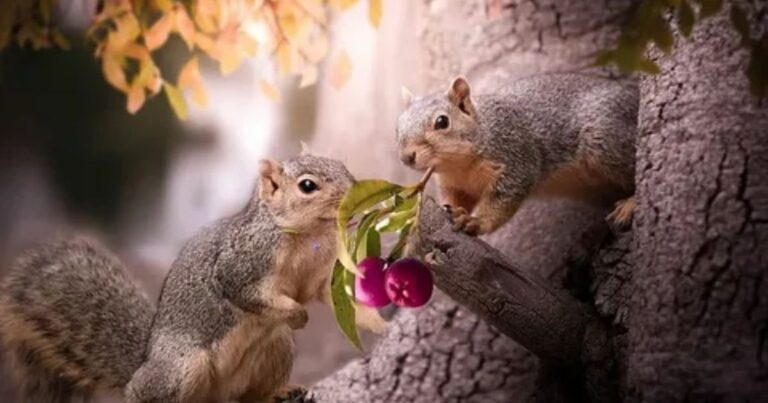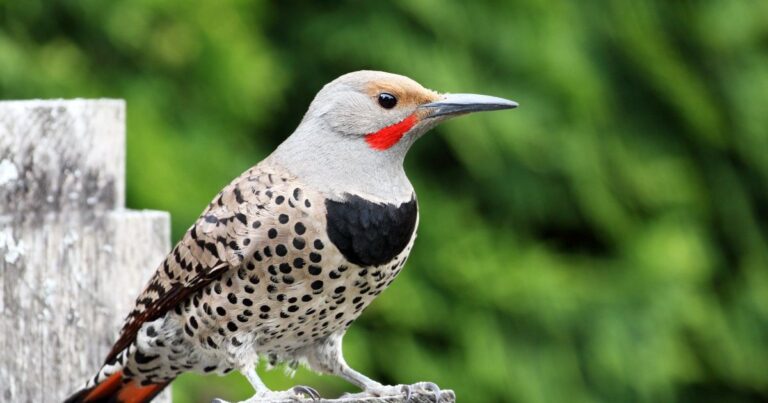Do Crows Eat Other Birds? Understanding Crow Diet and Behavior
Crows are often underestimated in their dietary habits, yet these intelligent birds exhibit complex behaviors that can include avian predation. Understanding Do Crows Eat Other Birds, especially their interactions with other bird species, sheds light on their role in the ecosystem and the intricate balance of avian life.
This article will explore the various aspects of a crow’s diet, the implications of their predatory behavior, and how it affects local bird populations. By delving into this topic, readers will gain insight into the fascinating world of crows and their impact on biodiversity.
What Kind Of Birds Do Crows Eat?
Crows are opportunistic feeders with a diverse diet that often includes small birds. While they are primarily scavengers, their hunting behaviors can extend to actively preying on vulnerable avian species, particularly those that are smaller or less agile.
Fledgling birds or those that are nesting can fall victim to crows, especially when they perceive an easy meal. This predation behavior raises questions about the ecological balance in their habitats, as it can impact local bird populations.
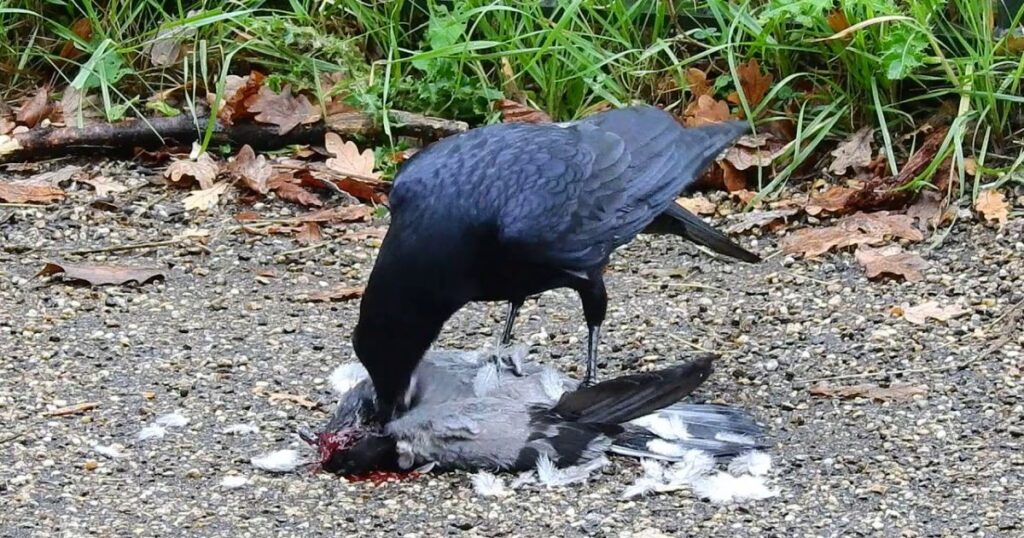
Crows often demonstrate a level of intelligence that allows them to adapt their hunting strategies based on environmental cues and competition. They may work together in groups to harass and overwhelm larger birds, driving them away from their nests or food sources.
Do Crows Eat Dead Birds?
Crows are often portrayed as scavengers, and indeed, they do eat dead birds, including those that are smaller than themselves. This behavior is not merely opportunistic; it plays a vital role in the ecosystem.
By consuming deceased animals, crows help to recycle nutrients back into the environment, which supports a healthier habitat for various species. Their intelligence allows them to locate carrion efficiently, often aided by their social structure where one crow’s discovery can alert an entire group.
While crows will feast on dead birds, they are also known to prey on live smaller birds when food sources are scarce. This predatory behavior showcases their adaptability and keen survival instincts.
In urban settings, where natural food sources may be limited, crows have been observed raiding nests to feed on eggs or fledglings. This dual role as both scavenger and predator highlights the complex dietary habits of these avian creatures and their critical function in maintaining balance within their ecosystems.
Do Crows Kill Ravens?
Crows and ravens, both members of the Corvidae family, often coexist in similar habitats, which raises intriguing questions about their interactions. While it’s not common for crows to specifically target ravens for predation, competition for resources can lead to aggressive encounters.
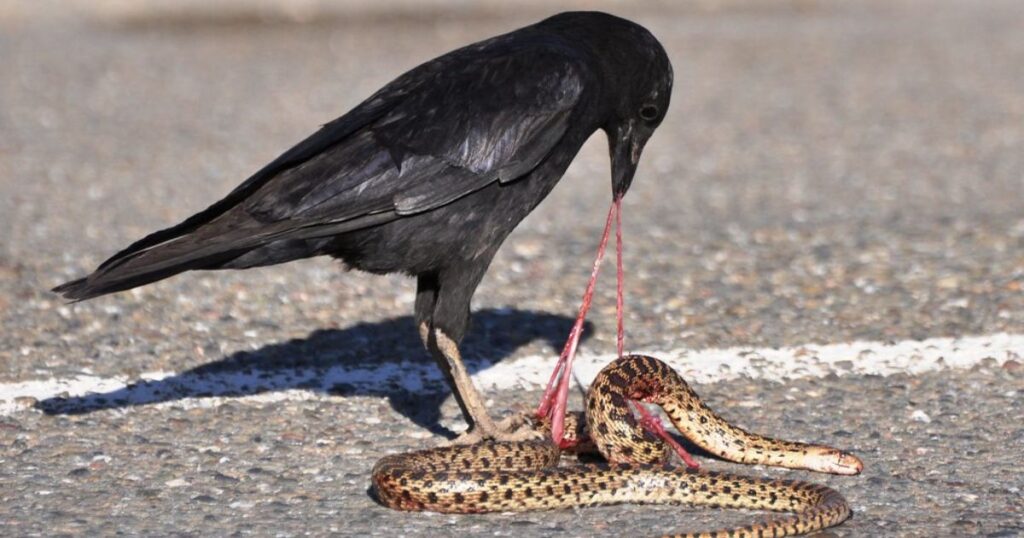
In scenarios where food is scarce, crows may exhibit predatory behavior toward smaller birds, leading to the question: do crows eat small birds? Indeed, crows are opportunistic feeders and will consume a wide range of prey, including small birds, if the opportunity arises.
Do Crows Kill Other Crows?
Crows, known for their intelligence and complex social structures, do occasionally kill other crows, raising intriguing questions about their behavior. While it might seem counterintuitive given their cooperative nature, such actions can stem from various factors, including territorial disputes, resource competition, and even social hierarchy.
What Else Do Crows Eat?
Crows are notorious omnivores, displaying an impressive adaptability when it comes to their diet. While they primarily feast on insects, fruits, and grains, they can also be surprisingly opportunistic hunters. Crows have been observed preying on smaller birds, such as nestlings or even adult sparrows, which can lead one to wonder: what birds do crows eat? Their predation is often driven by necessity, particularly during breeding seasons when their own energy needs peak.
Do crows eat other birds eggs?
Crows are often regarded as opportunistic feeders, and their diet can be surprisingly diverse. Among the various food sources they exploit, the eggs of other birds do indeed make an appearance on their menu.
This behavior is not merely a result of hunger; it is also a strategic adaptation to their environment. By consuming eggs, crows can supplement their nutritional intake, particularly during the breeding season when energy demands are high.
Do crows eat other birds babies?
Crows are often misunderstood when it comes to their dietary preferences. While many associate these intelligent birds with scavenging and foraging, they have a more complex relationship with their ecosystem.
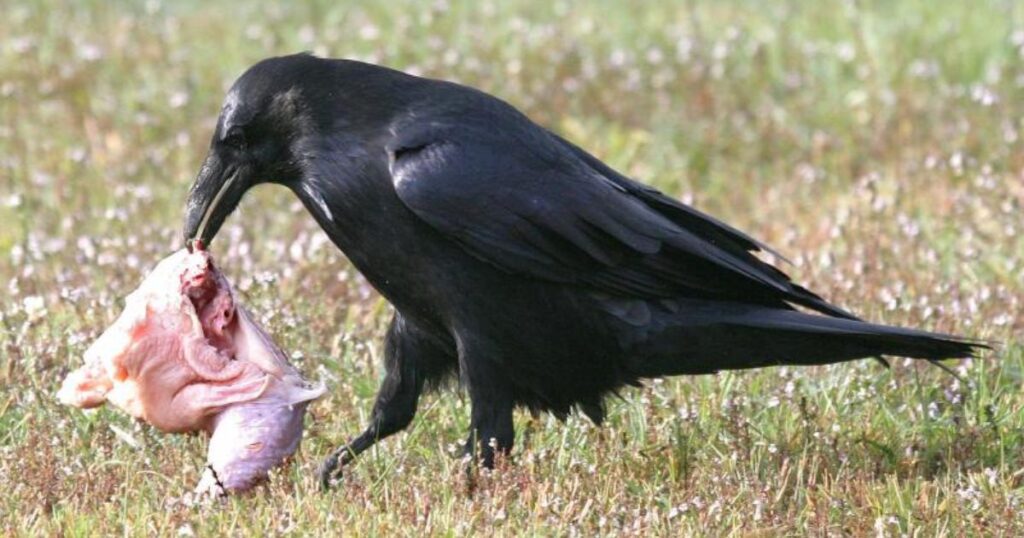
Yes, crows do eat other birds’ babies, but this behavior is part of their survival strategy rather than mere opportunism. Crows, being omnivorous, thrive on a varied diet that includes insects, fruits, and small animals, but during breeding season, they may take advantage of the vulnerability of nestlings to meet their nutritional needs.
How To Keep Crows Away From Bird Nests?
To effectively deter crows from invading bird nests, it’s crucial to understand their behavior and feeding habits. Crows are opportunistic feeders, often scouring open areas or urban settings where they can find easy meals.
By creating a less inviting environment for them, you can protect vulnerable nests. Consider installing decoys of predatory birds, like hawks or owls, in the vicinity. These natural enemies can send crows packing, as they instinctively avoid areas where predators might lurk.
Nest Boxes with a Small Opening
Nest boxes with small openings are a clever design choice that caters to the needs of various bird species while enhancing the overall success of avian nesting. These petite entrances serve as a protective barrier, deterring larger predators and invasive species from raiding nests. By limiting access, these boxes create a safe haven for delicate eggs and fledglings, allowing parent birds to raise their young with less stress.
The size of the opening can influence the types of birds that are attracted to your backyard. Smaller openings tend to favor cavity-nesting birds like wrens and chickadees, which are often more timid and prefer secluded environments.
This intentional design not only fosters biodiversity but also offers birdwatchers a unique opportunity to observe the charming behaviors of these smaller species in their natural habitat.
Meshed Bird Feeders
Unlike traditional feeders, these innovative designs allow multiple birds to feed simultaneously while minimizing seed waste. The mesh material not only encourages various species to visit but also provides a delightful spectacle as they flit in and out, showcasing their vibrant plumage and lively antics.

One of the most compelling aspects of meshed bird feeders is their adaptability to different environments and bird preferences. Their design often accommodates a variety of seeds, catering to diverse avian diets from sunflower seeds for finches to suet for woodpeckers. This versatility makes them an excellent choice for attracting a wider range of species, turning your garden into a colorful tapestry of life.
Read More: “Can Birds Eat Grapes? Safe Feeding Tips, Benefits & Common Species”
Final Thoughts
Crows are indeed opportunistic feeders that may consume other birds when the opportunity arises. Their adaptability allows them to thrive in various environments, and their intelligence plays a significant role in their feeding habits. While they primarily rely on insects, seeds, and scraps, the predation of smaller birds is not uncommon, especially in times of scarcity.
Do Crows Eat Baby Robins?
Yes, crows do eat baby robins, among other small birds. As omnivorous scavengers, crows have a diverse diet that includes insects, fruits, seeds, and small animals. They are known to take advantage of nesting season when baby birds are more vulnerable and less able to defend themselves.
Do Crows Eat Pigeons?
Yes, crows do eat pigeons on occasion, though it’s not their primary food source. Crows are opportunistic omnivores, meaning they will take advantage of available food sources in their environment.

